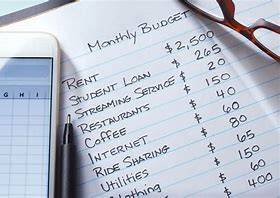Why It’s Important to Review and Adjust Your Budget Regularly
Setting a budget is a great first step toward financial stability, but it’s only half the equation. Regularly reviewing and adjusting your budget ensures that it remains relevant to your current financial situation, goals, and life changes. Here’s why it’s essential to revisit your budget frequently and how doing so can lead to long-term financial success.
1. Reflects Changes in Your Income and Expenses
Life is full of changes, and financial situations can shift quickly. Whether you get a raise, switch jobs, face unexpected expenses, or finish paying off a loan, these changes impact your budget. By reviewing your budget regularly, you can adjust your income and expenses to accurately reflect your new financial circumstances.
Example: If you get a raise, adjusting your budget allows you to decide how to allocate the extra income toward savings, investments, or discretionary spending.
Tip: Review your budget monthly to account for these changes and make the most of your financial resources.
2. Keeps You Aligned with Financial Goals
Your financial goals may evolve over time. You might start with a goal of building an emergency fund and later shift to saving for a vacation, buying a home, or paying down debt. Regularly adjusting your budget lets you redirect funds toward new priorities, helping you stay on track and avoid setbacks.
Example: Once you have a comfortable emergency fund, you might reallocate those savings contributions toward retirement or a big purchase.
Key Benefit: Regular budget reviews help keep your spending in alignment with your goals, ensuring you make progress toward what matters most.
3. Provides an Opportunity to Identify and Correct Overspending
It’s easy for spending to creep up in certain categories, especially in discretionary areas like dining out or entertainment. A monthly or quarterly budget review allows you to identify any areas where you might be overspending and make necessary adjustments before it becomes a problem.
Example: If you notice you’re spending more on streaming subscriptions than planned, you can reduce or eliminate some to stay within budget.
Tip: Use budgeting tools or apps to track spending automatically and make adjustments easier to identify.
4. Allows You to Optimize Savings and Investments
When your budget is regularly updated, you can assess how much you’re saving and investing and find opportunities to increase those contributions. Small increases in monthly savings can significantly impact your long-term financial stability, especially with the power of compound interest.
Example: If you finish paying off a loan, reallocate that payment amount toward your savings or investment accounts.
Key Insight: Consistent increases to your savings, even in small amounts, accelerate your path to achieving bigger financial goals.
5. Helps You Prepare for Unexpected Expenses
Regularly revisiting your budget enables you to be proactive about unexpected expenses. Having a realistic and flexible budget allows you to build an emergency fund or cushion in anticipation of occasional costs, like car repairs or medical bills, without derailing your financial plan.
Example: Set aside a small portion each month for miscellaneous expenses. If nothing arises, roll that amount into savings or an emergency fund.
Tip: Budgeting for the unexpected protects your finances, reducing the need for high-interest debt.
6. Increases Financial Awareness and Accountability
The act of reviewing your budget fosters better financial habits and increased awareness of where your money is going. As you develop a habit of checking your budget, you become more mindful of your spending patterns, which can lead to better financial decision-making over time.
Example: Seeing that you’re consistently overspending on non-essentials may encourage you to cut back in that area and redirect funds toward your goals.
Key Benefit: Regular budget adjustments encourage accountability, empowering you to take control of your financial habits.
7. Reduces Financial Stress
A well-maintained budget can greatly reduce financial stress by creating a clear roadmap for your money. When you know exactly where your money is going and have confidence that it aligns with your goals, you’re less likely to worry about unexpected expenses or financial surprises.
Example: With a clear budget, you’ll feel more prepared for holidays, vacations, or major life events without the anxiety of overextending financially.
Key Benefit: Budgeting helps you manage financial stress by providing clarity and peace of mind.




No comments yet
Be the first to share your thoughts!